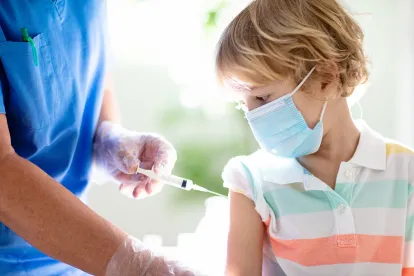Since the Biden administration announced its intention to end the COVID-19 National Emergency (NE) and the COVID-19 Public Health Emergency (PHE) on May 11, 2023, a topic of great debate has been the requirement and the coverage of COVID-19 vaccines.
As of March 27, 2020, the Coronavirus Aid, Relief, and Economic Security (CARES) Act has required health plans and issuers to cover COVID-19 vaccines without cost sharing, even when provided by out-of-network providers, during the PHE. Health plans and issuers have been required to cover COVID-19 vaccines within 15 days after any vaccine becomes recommended by the Advisory Committee on Immunization Practices (ACIP) of the Centers for Disease Control and Prevention or receives a rating of “A” or “B” classification recommendation from the United States Preventive Services Task Force (USPSTF). Separately, the Affordable Care Act (ACA) generally requires coverage of vaccines recommended by the ACIP and the USPSTF as preventative care without cost sharing. If a COVID-19 vaccine is provided by an out-of-network provider, however, health plans may begin to impose cost sharing and certain prior authorization and medical management requirements. As a result, after the PHE, COVID-19 vaccines will still need to be covered without cost sharing except in the case of an out-of-network provider.
Due to the ongoing requirements of the ACA, there will be minimal actions that employers need to take after the PHE ends regarding vaccine coverage. The primary changes are that ACIP-recommended COVID-19 vaccines should be covered immediately instead of after a 15-day hold period and that health plans can decide whether to apply cost sharing, prior authorization and medical management requirements to COVID-19 vaccines obtained from an out-of-network provider. A summary of material modifications and/or plan amendment may be required for any changes the health plan makes. Even for plans that are not subject to the ACA, such as grandfathered health plans, participants cannot be balance billed if a vaccine dose was purchased by the federal government. However, the federal government has not received additional funds from Congress to continue to purchase more vaccines for some time. Employers and plan sponsors should stay up to date on developments, as there may be some questions regarding which vaccines must be covered without cost sharing as more vaccines become available.






 />i
/>i

